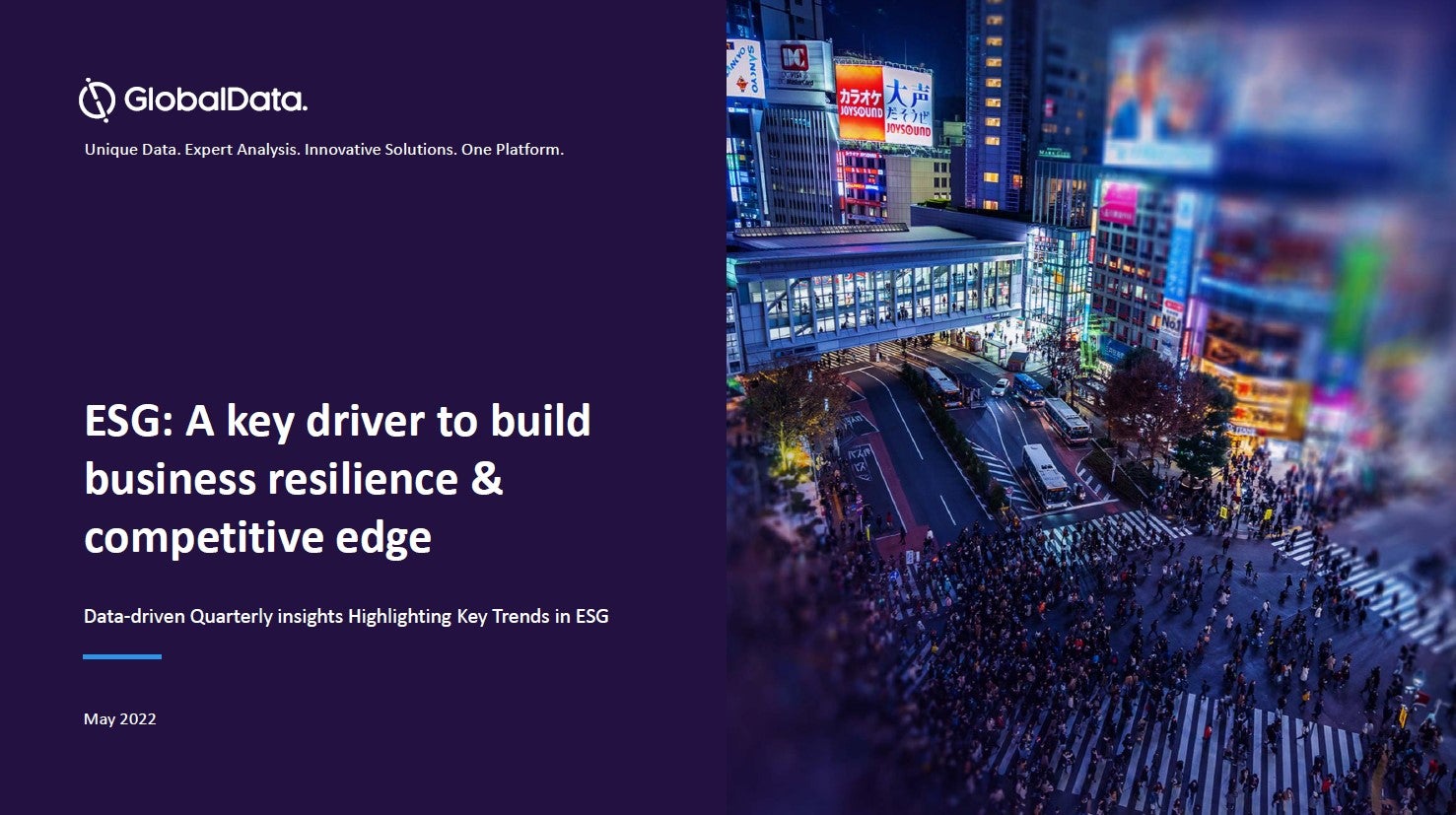Environmental, social, and corporate governance (ESG) is a complex set of issues, and it can be difficult for companies to prioritise effectively. As foodservice is at the very end of the supply chain, sustainable and ethical sourcing will be critical to reducing environmental footprint, evade scandals, and improve social outcomes.
Listed below are the key macroeconomic trends impacting the ESG theme in foodservice, as identified by GlobalData.
How well do you really know your competitors?
Access the most comprehensive Company Profiles on the market, powered by GlobalData. Save hours of research. Gain competitive edge.

Thank you!
Your download email will arrive shortly
Not ready to buy yet? Download a free sample
We are confident about the unique quality of our Company Profiles. However, we want you to make the most beneficial decision for your business, so we offer a free sample that you can download by submitting the below form
By GlobalDataCovid-19
Covid-19 has significantly impacted the foodservice industry and changed demand from consumers. The increased health concerns, government directives, supply chain, and workforce disruptions forced foodservice companies to rapidly adapt, taking a range of measures, from improving health and safety procedures to closing restaurants altogether.
The implications of Covid-19 for ESG have been twofold. Operationally, it increased health and safety risks for staff members often working in restricted, crowded spaces, forcing companies to develop contingency plans, minimising risks. From a consumer preference standpoint, it increased the demand for product safety and traceability, heightening the need to maintain health and safety protocols.
Gig economy
The gig economy is characterised by the prevalence of short-term contracts or freelance work instead of permanent jobs. Proponents point to the flexibility it offers in terms of working hours, but critics highlight the low wages and lack of basic employment rights offered to long-term employees.
Governments will continue to clamp down on abusers of the gig economy by clarifying definitions of employment status and classifying supposedly self-employed gig economy workers as employees, with rights to the minimum wage and holiday pay, among other benefits.
Ethical consumption
Over the last decade, the public developed a heightened awareness and concern for the scale, complexity, and interdependence of global social and environmental challenges. Public anger at the lack of action on climate change, corruption, income inequality, tax avoidance, and other social ills makes it harder for CEOs to ignore sustainability.
Consumers increasingly hold companies to account for their ethical and environmental practices and make purchasing decisions based on companies’ actions. Consumers are attentive to all aspects of the production process, from the sustainable and ethical sourcing of raw ingredients to the carbon footprint associated with production processes and the environmental credentials of the packaging.
Generation Hashtag
Generation Hashtag, that is, those born between 1991 and 2005, makes up one-quarter of the world’s population, and its influence will only increase over the next decade as its members continue to enter the workforce.
As a generation coming of age during recessions, fractured politics, and exposure to ‘fake news’, consumers in this cohort are understandably cynical or even distrustful of established institutions and corporations. Their consumption habits will reflect this, as consumers more rigorously hold brands accountable for their actions.
Tokenistic efforts to display social and environmental responsibility will no longer suffice; consumers will choose brands that wholeheartedly embrace corporate social responsibility (CSR), from ethical business practices and a commitment to sustainability, transparency, and philanthropy.
This is an edited extract from the ESG (Environmental, Social, and Governance) in Foodservice – Thematic Research report produced by GlobalData Thematic Research.






